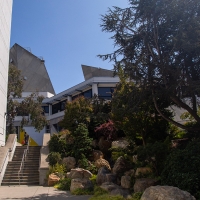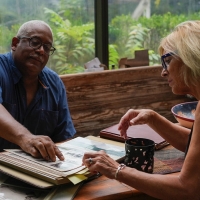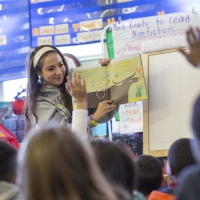In new book, SFSU professor revisits African American comedy of the 1980s and 1990s
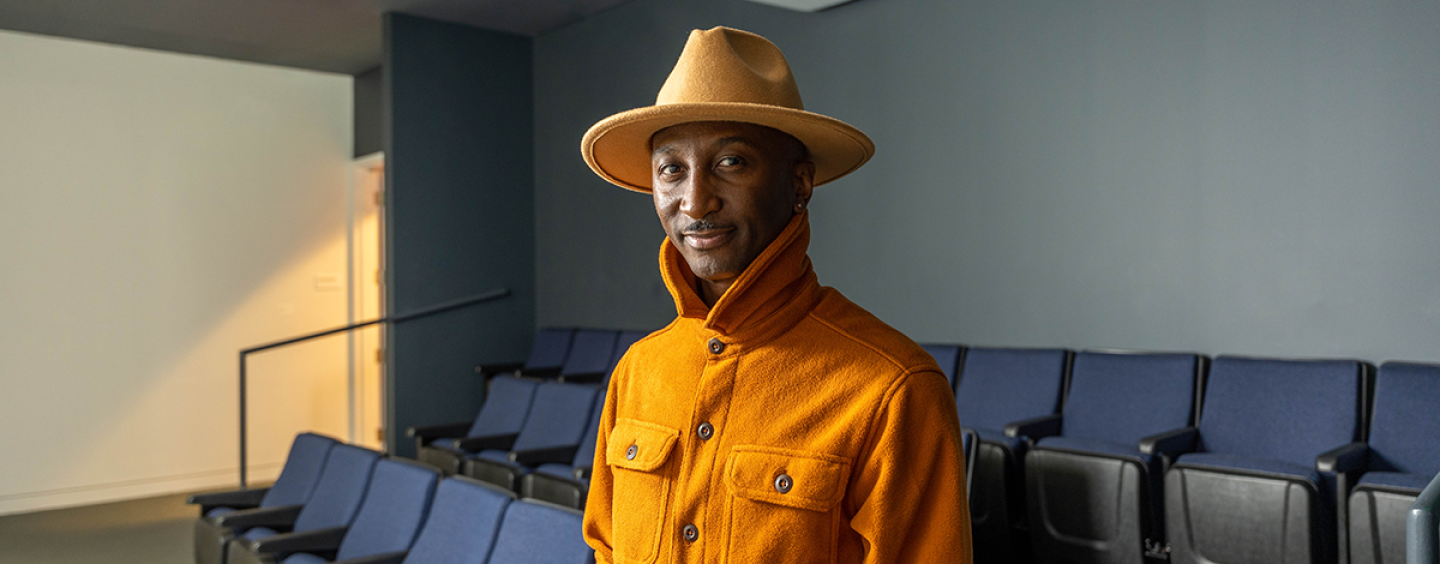
‘The Black Pack,’ by Artel Great of the School of Cinema, explores legacy of five influential comedians
The most popular African American-helmed comedies of the 1980s and 1990s made millions of people laugh, but San Francisco State University Associate Professor Artel Great has discovered a greater purpose in them. His new book, “The Black Pack: Comedy, Race and Resistance,” offers groundbreaking scholarly analysis on five influential artists of the era: Eddie Murphy, Keenen Ivory Wayans, Arsenio Hall, Robert Townsend and Paul Mooney.
These five men joined forces as a comedic collective known as “The Black Pack” and became household names as actors, writers, producers, directors and collaborators. In “The Black Pack” (Rutgers University Press), Great cites 24 productions between 1987 and 1994 that defined a generation, both splitting sides and testing boundaries. In a review of “The Black Pack,” the Library Journal praises the book as “an entertaining and essential read.”
“I call it ‘laugh-tivism.’ The book is a tribute to generations of Black American comedians and how they used their voices to challenge corrupt authority, to confront the racial condition in America and to say very serious things,” Great said. “The book speaks to this notion of revolutionary laughter, but it also speaks to the need for a creative space for laughter as catharsis and the need to create space for Black joy — and to do so through brotherhood and solidarity.”
Great is a scholar, filmmaker, actor and former standup comedian who holds SFSU’s George and Judy Marcus Endowed Chair in African American Cinema Studies. He appeared in films such as “Light It Up” and “Save the Last Dance” and landed an Independent Spirit Award nomination for “Dahmer” before earning his doctorate at New York University and later directing two feature films.
From age 9, Great spent countless nights at his grandmother’s house in Chicago watching classics like Hall’s talk show, Townsend’s “Hollywood Shuffle” and Wayans’ “In Living Color.” It wasn’t until years later that he noticed how the rebellious, pro-Black themes spoke to sociopolitical issues that persist between generations.
Great traces the lineage of Black American comedy from slavery and vaudeville. In the late 19th century, a biracial man named Charley Case established the contemporary style of standup comedy. He would take command at center stage and speak directly to the audience, sometimes with minstrelsy makeup on his face, Great writes in “The Black Pack.”
Great plans to use “The Black Pack” in his SFSU School of Cinema courses, accompanied by viewings. He’s excited to observe how students react. Eddie Murphy films like “Boomerang” and “Coming to America” still make him laugh and give him feelings of nostalgia but may be new to them. More importantly, Great hopes students will be inspired to bring brightness to the world, with humor or without: “My ultimate goal is to always make our students more active and practical citizens.”
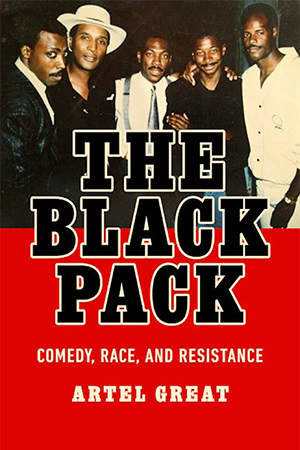
Courtesy of Rutgers University Press
Tags
